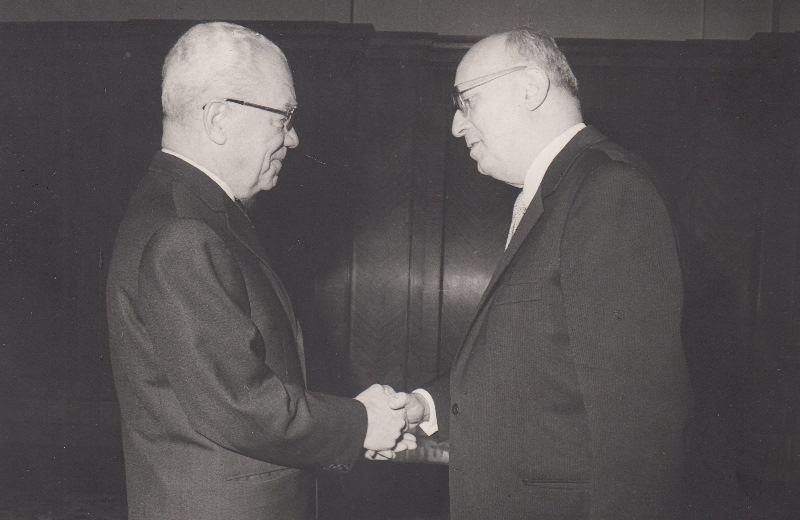Constantin C. Giurescu on:
[Wikipedia]
[Google]
[Amazon]
 Constantin C. Giurescu (; 26 October 1901 – 13 November 1977) was a
Constantin C. Giurescu (; 26 October 1901 – 13 November 1977) was a  Giurescu returned to the University of Bucharest in 1963 and was elected titular member of the Romanian Academy in 1974. As a great specialist in
Giurescu returned to the University of Bucharest in 1963 and was elected titular member of the Romanian Academy in 1974. As a great specialist in
 Constantin C. Giurescu (; 26 October 1901 – 13 November 1977) was a
Constantin C. Giurescu (; 26 October 1901 – 13 November 1977) was a Romania
Romania is a country located at the crossroads of Central Europe, Central, Eastern Europe, Eastern and Southeast Europe. It borders Ukraine to the north and east, Hungary to the west, Serbia to the southwest, Bulgaria to the south, Moldova to ...
n historian
A historian is a person who studies and writes about the past and is regarded as an authority on it. Historians are concerned with the continuous, methodical narrative and research of past events as relating to the human species; as well as the ...
, member of the Romanian Academy, and professor at the University of Bucharest.
Born in Focșani, son of historian Constantin Giurescu, he completed his primary and secondary studies in Bucharest
Bucharest ( , ; ) is the capital and largest city of Romania. The metropolis stands on the River Dâmbovița (river), Dâmbovița in south-eastern Romania. Its population is officially estimated at 1.76 million residents within a greater Buc ...
. In 1923, he graduated with a doctorate from the University of Bucharest with the thesis "Contributions to the studies of great dignitaries of the 14th and 15th century." He completed his education at the Romanian School in Paris (1923–1925) (established in 1920 by Nicolae Iorga) and upon return, he began his teaching career. He was editor (1933) of the Romanian Historical Review and founder (1931) and director (1933) of the National Institute for History.
His political activity included membership of the Chamber of Deputies of Romania (1932–1933) and secretary in the National Renaissance Front government (1939–1940).
After World War II
World War II or the Second World War (1 September 1939 – 2 September 1945) was a World war, global conflict between two coalitions: the Allies of World War II, Allies and the Axis powers. World War II by country, Nearly all of the wo ...
and the advent of the Communist regime in Romania, he was fired from the University of Bucharest in 1948, and was sent as a political prisoner at the notorious Sighet Prison, where he was incarcerated from 1950 to 1955.
 Giurescu returned to the University of Bucharest in 1963 and was elected titular member of the Romanian Academy in 1974. As a great specialist in
Giurescu returned to the University of Bucharest in 1963 and was elected titular member of the Romanian Academy in 1974. As a great specialist in medieval
In the history of Europe, the Middle Ages or medieval period lasted approximately from the 5th to the late 15th centuries, similarly to the post-classical period of World history (field), global history. It began with the fall of the West ...
and early modern history of Southeast Europe
Southeast Europe or Southeastern Europe is a geographical sub-region of Europe, consisting primarily of the region of the Balkans, as well as adjacent regions and Archipelago, archipelagos. There are overlapping and conflicting definitions of t ...
, he was expected to have been the first to hold the Nicolae Iorga Chair at Columbia University
Columbia University in the City of New York, commonly referred to as Columbia University, is a Private university, private Ivy League research university in New York City. Established in 1754 as King's College on the grounds of Trinity Churc ...
in New York City
New York, often called New York City (NYC), is the most populous city in the United States, located at the southern tip of New York State on one of the world's largest natural harbors. The city comprises five boroughs, each coextensive w ...
in the Spring semester of 1972.
He authored works such as ''History of Romanians'', ''Nomadic Populations in the Euro-Asian and the part they played in the formation of Mediaeval States'', ''The Making of the Romanian Unitary State'', ''The Making of the Romanian People and Language'', ''Chronological History of Romania'', ''Transylvania in the History of the Rumanian People'', and ''A history of the Romanian forest''.
He was the father of historian Dinu C. Giurescu.
Constantin C. Giurescu died in Bucharest in 1977, aged 76.
References
1901 births 1977 deaths People from Focșani National Liberal Party-Brătianu politicians Ministers of culture of Romania Members of the Chamber of Deputies (Romania) 20th-century Romanian historians University of Bucharest alumni Academic staff of the University of Bucharest Titular members of the Romanian Academy Inmates of Sighet prison Romanian prisoners and detainees institutional historians {{romania-historian-stub